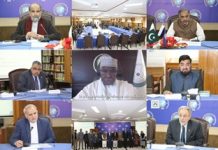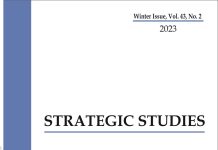After more than 67 years of independence, a nuclear armed Pakistan is still struggling to cope with its external and internal challenges. Some of these challenges are being confronted by Pakistan since its birth, while other challenges have emerged recently.
Against this backdrop, Ayesha Jalal, in The Struggle for Pakistan: A Muslim Homeland and Global Politics, has made an attempt to critically evaluate and trace the origins of contemporary problems including religious extremism, regional dissidence, political, and economic challenges being faced by Pakistan. She made this attempt in order to develop a narrative for the future of a modern Pakistan in a changing globalised world. She argues that in the formative phase, the national character and identity of Pakistan could not be established due to an imbalance between non-elected institutions and elected institutions; and between narratives of Islamic and modern ideology to govern Pakistan. As a result, this imbalance gave rise to military authoritarianism where democracy did not flourish and the country was ruled by the non-elected institutions rather than by its ideology. Through her arguments on military dominance vs. democracy, she points towards flaws in the system and its surrounding or supporting structure. She argues that frequent military rule influenced political and democratic processes and accentuated tensions between provinces, especially between Punjab and non-Punjabi provinces.












